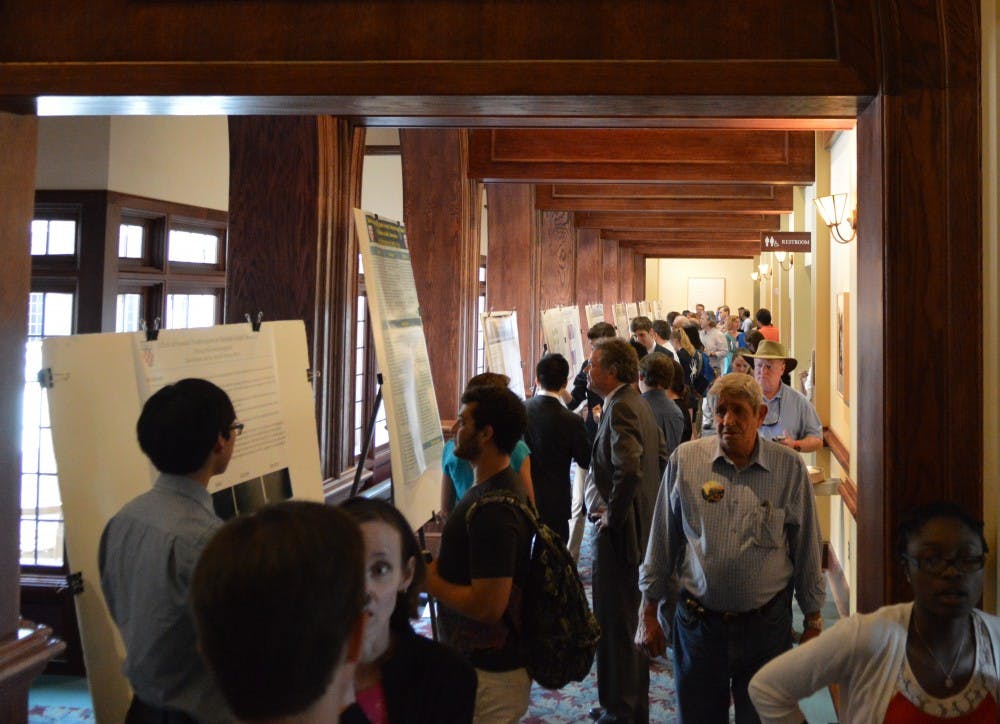On Friday, April 17, the School of Arts & Sciences hosted the annual Student Symposium, offering students of various disciplines the opportunity to share the results of their research projects.
“The symposium really is the culmination of student work that they may have been doing for several years,” said Cindy Bukach, a psychology professor who organized the symposium.
“Projects aren’t really complete until you actually share that project with others. It also marks the transformation of the student from a consumer, to a producer of knowledge,” Bukach said.
Many students were involved by helping professors in their own research. Alex Beman and Hadi Abdullah, for example, assisted professor Douglas Szajda in a research project titled “Detecting Javascript Malware in Real-Time.”
Beman contributed to the research by breaking apart the components of a webpage, and identifying which pieces had the potential to contain malware. “It’s a great experience, especially if you want to learn how to do things in an industry,” Beman said.
Abdullah shared a similar sentiment, saying that the research taught him “how to identify a problem, and how to go about solving it," because they were forced to do things on their own. “The entire process was a process in learning how to learn,” he said.
Other students conducted individual research projects, usually for a senior capstone or honors seminar requirement.
For his senior human rights seminar, Carl Amyas Taylor examined the link between culture and voting rights. Taylor said that the research gave him an opportunity to work with issues he was passionate about.
“One thing that I want to do is encourage equality and freedom in countries around the world where it just hasn’t happened.” Taylor pointed out places of interest like Ethiopia which, while technically democratic, had corrupt and oppressive regimes.
While natural and social sciences were well represented, Bukach said that the Symposium was also an opportunity to explore student research in the Arts.
Kylie McCormick, for example, studied and helped put together the University’s Spring production of “Funny Girl,” a musical drama.
Meagan Rodriguez studied another theater related topic: Female Agency, Color, and Magic in the Mythology of L. Frank Baum’s The Wonderful Wizard of Oz. Rodriguez studied how the control of magic and color, two important themes in Oz, changed over time across various versions of The Wizard of Oz.
Enjoy what you're reading?
Signup for our newsletter
While the original novel featured strong female characters, female characters in the 1939 film and subsequent productions actually lost some of their agency.
“It’s important to see the power that visual artists have to show the sorts of power dynamics we have embedded into our literature,” Rodriguez said, “and how they can be interpreted over time to reflect how we feel about women."
“Especially in this country where we constantly discuss whether or not art should have funding, showing people how much work and power art has in an academic context is really important,” Rodriguez said.
Contact features editor Janus Cataluna-Palma at janus.catalunapalma@richmond.edu.
Support independent student media
You can make a tax-deductible donation by clicking the button below, which takes you to our secure PayPal account. The page is set up to receive contributions in whatever amount you designate. We look forward to using the money we raise to further our mission of providing honest and accurate information to students, faculty, staff, alumni and others in the general public.
Donate Now



